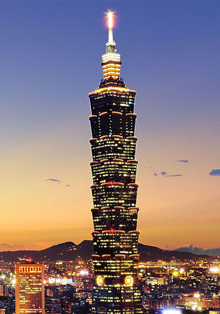Miguel Ángel Belmonte
Professor of Political Science at the Universitat Abat Oliba CEU
During the last week, the media have echoed a new crisis related to massive movements of migrants. In this case, all eyes have been focused on the Polish-Belarusian border, although this is a situation with which they are already familiar at the Lithuanian-Belarusian border since the beginning of last summer. Also at the other end of the European Union we have recently witnessed analogous situations with the waves of migrants trying to cross the Spanish-Moroccan border to enter Ceuta or Melilla. This is a mechanism in which migrants become an instrument of pressure from one country against another (or from one ’empire’ against another) to the point that these situations have been described as ‘hybrid wars’.
Both Morocco and Belarus know that in some economic and military aspects they are inferior to the European Union, but nevertheless they exploit to their advantage their geographical proximity (it is enough to look at a map to understand that Belarus is like a Russian “knife” entering the EU) and the desire for migrants coming mainly from black Africa and the Middle East.
In the case of the Polish-Belarusian border, and despite the difficulty of reporting on the ground (in Belarus there is no transparency of information and in Poland the area near the border is simply inaccessible because it has been declared a high military risk) everything points to the fact that the migrants are mostly Kurds. The images of adults warming themselves in front of improvised fires and children with signs in English asking to go back to school are somewhat artificial. A Kurdish migrant interviewed by telephone by a specialized journalist admits that he has already traveled from Minsk to the border (and back) several times. It seems clear that the Belarusian government facilitates the coming and going of these migrants, for whom returning to their country of origin is not an option, so that the border pressure increases or decreases depending on the escalating reactions of European leaders.
The parallel between Morocco and Belarus is also in the immediate causes of the conflict. In both cases the rulers are seen from the outside as undemocratic, even unhumanitarian. In the Moroccan case, there was a lot of reaction to the Spanish support for Brahim Gali, leader of the Polisario Front supported in turn by Algeria. In the Belarusian case, Lukashenko, in power uninterruptedly since 1994 -longer even than Putin (1999), which is saying something-, has been repeatedly accused by Brussels of falsifying the election results in order to be reelected time and again. The European Union has timidly supported anti-government protest movements, although the bitter experiences of the so-called ‘color revolutions’ do not bode well.
Thirty years after the fall of the Berlin Wall, it should be remembered that many former Soviet republics at one time or another went through a popular movement aimed at overthrowing those who, coming from the former communist elites, had clung to power transformed overnight into fervent capitalist democrats. The best known was the Orange Revolution in Ukraine, which looked like a peaceful revolution, but was consummated years later in the famous ‘Euromaidan’ with which the mobs ended up forcing Yanukovich to flee the country, who, by the way, boasted, like Lukashenko, of having been the legitimate winner of the elections.
We all know how that explosion of anti-Russian Ukrainian patriotism – a local product of modern Ukrainian nationalism that makes Russia the main enemy of Ukraine, instead of delving into the common past of Ukraine, Russia and Belarus – ended up. Do not forget that Russia was born in Kiev, Belarus means White Russia and Ukraine means something like ‘border’.
Nor should it be forgotten that no state today can play at going it alone in the world, but has to have the umbrella of some ’empire’ and that the EU does not seem to have the capacity or talent to take either Ukraine or Belarus under its umbrella. Something that, however, Russia is willing to do as a matter of course. It should also be borne in mind that the current EU tension with Belarus coincides in time with an escalation of the frozen and unresolved conflict in Lugansk and Donbass. Moscow and Kiev accuse each other of not respecting the Minsk agreements.
So, where are we heading? Lukashenko has even threatened to cut off Russian gas supplies flowing to Europe through Belarus. This he will not do because it would be an economic disaster for Russia. But it serves to frighten European public opinion and, incidentally, its leaders, who will probably make grandiloquent declarations of indignation and then, subtly, make some concession to Lukashenko that will keep him happy for a while so that the unpleasant images of terrified families with a bonfire on one side and a barbed wire fence guarded by soldiers on the other side will no longer appear in the news.
© All rights reserved






